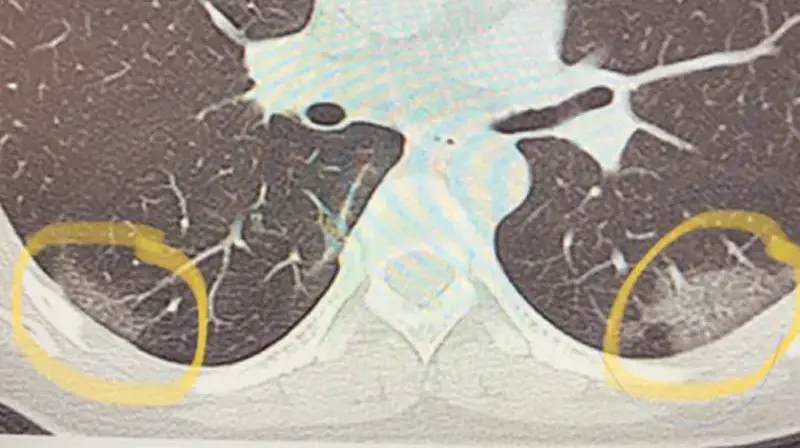Coronavirus
February, 2020
Cyrus Khorrami, MD
Radiologist, Medical Director

Every flu season, civilians and healthcare professionals are worried about their health and are taking preventive measures to stay healthy. This year, though, we have an extra dose of pressure: the new variety of coronavirus.
To be clear, “coronavirus” is a general term that refers to a group of viruses that have similar structures. The group isn’t new, but like any virus, it has changed and branched out over time. The outbreak we’re seeing now is merely the latest branch of that family tree. The clinical name for this new virus is COVID-19, but for ease of understanding, we’ll call it the 2019 coronavirus.
Q: How Did the 2019 Coronavirus Start?
Most people know that this coronavirus outbreak started in Wuhan, China, but they don’t realize how. The illness started among vendors at a fish market in Wuhan. It appears that this virus used to circulate in the animals that were sold in the market, most likely snakes. In December, though, it made a change we rarely see in viruses: it jumped species and began affecting humans.
Q: Why Is the 2019 Coronavirus Dangerous?
The problem with this new coronavirus is the word “new.” While researchers know much about how other viruses in the coronavirus family behave, we don’t yet know how different the 2019 coronavirus may be. We already know some concerning facts about the virus. We know that it’s contagious before the symptoms appear so it’s difficult to contain. We know it spreads from person to person and that the virus may be able to live on non-human surfaces for 24 hours or more. Above all, though, the issue is that we don’t know if there are other mysteries and problems with the 2019 coronavirus that are undiscovered.
Q: How Do You Tell the Difference Between the 2019 Coronavirus and the Common Cold or the Flu?
The 2019 coronavirus is a respiratory virus. That means its symptoms are very similar to the common cold and the flu. The most reliable way to know which illness you may have is through your travel history or that of someone close to you. While there are a few 2019 coronavirus cases in the United States, you’re highly unlikely to contract it unless you’ve recently been to China, especially around Wuhan. This coronavirus also tends to cause shortness of breath, body aches, and chills. While these can also be present with a cold or the flu, they do increase the chances that you have the 2019 coronavirus.
Q: How Do You Diagnosise the 2019 Coronavirus?
There is overlap between this disease and flu or a bad cold. Doctors use clinical symptoms including travel history to help with the diagnosis. X-ray and CT findings show disease in the lung. Today, the only organization that can test for the 2019 coronavirus is the Centers for Disease Control and Prevention (CDC). If you think you may have the virus, call ahead to a medical office so they can prepare the facility and alert the CDC. Explain your symptoms and whether you’ve visited China recently or have had close contact with someone who has.
Q: How to Treat the 2019 Coronavirus?
For the 2019 coronavirus, as with many viruses, there is no direct treatment for the virus itself. The primary treatment is to relieve symptoms and prevent the illness from spreading to those around you while your body recovers. Fortunately, most people with coronavirus have recovered smoothly with supportive medical care.
Q: Preventive Measures for the 2019 Coronavirus Outbreak?
Your chances of contracting the 2019 Ccoronavirus while going about your life are incredibly small. Even among those who contract the virus, the vast majority are recovering smoothly. Of course, it never hurts to take preventative measures. In fact, many of the tips to avoid the 2019 coronavirus are the same measures you can take to avoid other illnesses. They’re good habits to have all-around.
- Keep Your Hands Clean.Hand wash often!
- Avoid touching others when it isn’t necessary. That’s especially true for people you don’t know because you may not realize they’re sick.
- Clean Surfaces Often. Especially areas that are touched by multiple people.
- Stay Home if You’re Ill. The rule of thumb is to stay home until you’ve been fever-free for 24 hours.
- Pay More Attention to Your Overall Health. Common mistakes like sleeping too little, eating an unbalanced and non-nutritious diet, having excessive stress, or exercising too little can make your immune system less effective. During this outbreak and other high-illness times, make your healthy habits a priority